Earth
Sign up for our newsletter
We summarize the week's scientific breakthroughs every Thursday.
-
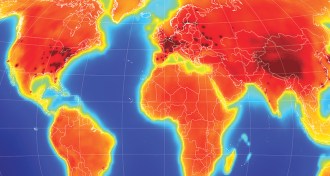 Particle Physics
Particle PhysicsMap captures Earth’s antineutrino glow
Tiny subatomic particles called antineutrinos stream away from Earth at different concentrations across the globe, a new map illustrates.
By Meghan Rosen -
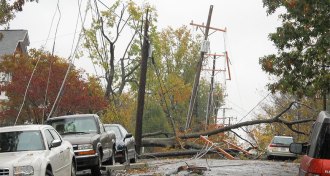 Climate
ClimateHurricane reports ignore indirect deaths
Nearly half of all hurricane and tropical storm fatalities are indirect, yet they typically aren’t included in official storm reports.
-
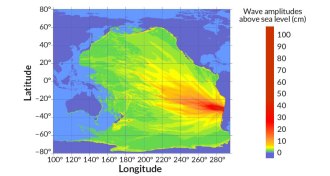 Earth
EarthShortcut math predicts tsunami height quickly
The September 16 earthquake that rattled Chile proved an unexpected test for new numerical calculations that could provide quicker forecasts of incoming tsunamis.
-
 Oceans
OceansGiant barrel sponges are hijacking Florida’s coral reefs
Giant barrel sponges are gradually taking over and threatening Florida’s coral reefs, a new census suggests.
-
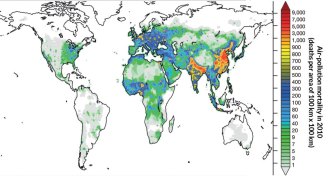 Environment
EnvironmentHome fires, farm fumes are leading causes of air-pollution deaths
Deadly air pollution comes from surprising sources, but toxicity of different types is still up in the air.
By Beth Mole -
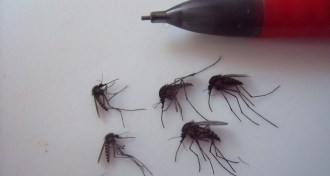 Animals
AnimalsWarmer waters give Arctic mosquitoes a growth spurt
Arctic mosquitoes develop faster in warmer waters, outpacing increased predation.
-
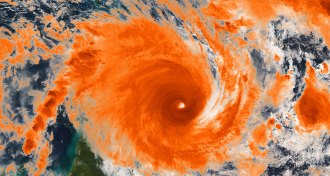 Climate
ClimateEarth just had its first storm-free hurricane peak in 38 years
This year marks the first time since 1977 that September 12, the typical height of the Atlantic hurricane season, passed without a single major cyclone anywhere in the Northern Hemisphere.
-
 Animals
AnimalsShipwreck provides window into Tudor-era cod fishing
In the 1500s, England was feeding its navy with fish caught far from home, a new study finds.
-
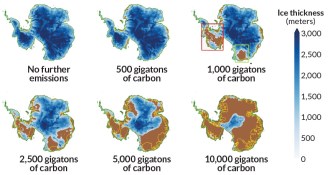 Climate
ClimateBurning remaining fossil fuels would eradicate Antarctic ice
Finishing off Earth’s available carbon resources would nearly eliminate the Antarctic ice sheet and raise sea levels by more than 50 meters, new research calculates.
-
 Earth
EarthEarth’s magnetic mystery forces scientists to get creative
In explaining the Earth’s magnetic field paradox, scientists may discover a new question with an even more interesting answer.
By Eva Emerson -
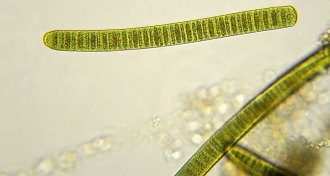 Oceans
OceansEarth got first whiff of oxygen 3.2 billion years ago
Photosynthesis by early cyanobacteria pumped oxygen into Earth’s oceans 200 million years earlier than once thought, new geochemical analyses show.
-
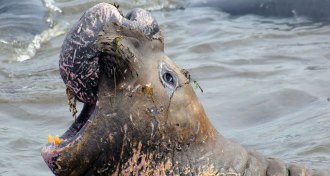 Environment
EnvironmentMolting seals shed mercury along with fur
Seals spew amassed mercury when they shed, creating hotbeds of pollution in otherwise pristine coastal environments.
By Beth Mole